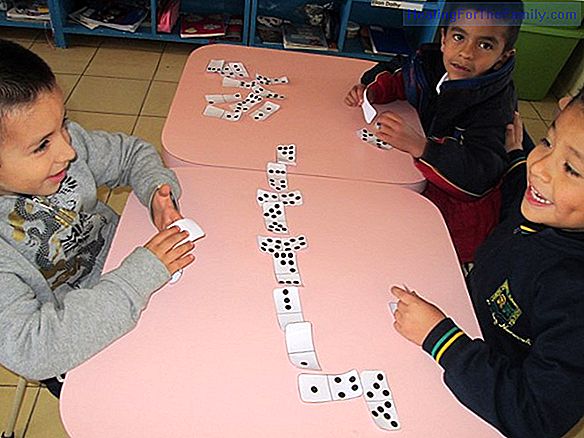How to educate emotionally strong children
Having a good emotional intelligence is the basis for your child to have a good self-esteem, improve their social relationships or identify their emotions and get to resolve the conflicts that appear in their day to day. But how do I get my son to improve in his emotional world and improve those con
Having a good emotional intelligence is the basis for your child to have a good self-esteem, improve their social relationships or identify their emotions and get to resolve the conflicts that appear in their day to day. But how do I get my son to improve in his emotional world and improve those concepts? How to educate emotionally strong children?
Emotional education in childhood

Emotional education is fundamental for any child, however, the children who can benefit the most are those who have a very intense sensitivity and empathy and because of this they are overwhelmed by many of the changes or problems that arise around him, but also to those who, faced with a problem, have a hard time confronting him.
Goleman, a psychologist who wrote the book Emotional Intelligence in 1995, defines Emotional Intelligence as "the ability to recognize our own feelings and those of others, to motivate ourselves and to manage emotions well, in ourselves and in our relationships". That is, being emotionally strong does not mean that your child does not cry or not affect the feelings of others, but know how to manage it properly. Precisely, that is one of the pillars of emotional education: help your child in the regulation of their emotions. For this, we offer you some tips that will help you to achieve it.
Tips to educate emotionally strong children
- Do not pretend to teach all emotions at once. The key is to go little by little so you can assimilate each of them. The ideal is to start with the basic emotions of joy, sadness, fear and anger and from there continue to deepen to more complex emotions such as frustration or jealousy. It is necessary that you set some goals emotionally speaking, if you see that you have tantrums, it is clear that this can be a good start because you already have difficulties in knowing how to handle it. However, to understand an emotion well is not enough just to identify it in oneself, identification is a good step, but it is also important to identify it in others "He is angry", express that emotion "I feel angry" and know how to regulate that emotion "If I'm angry, it's best to breathe."
- Talk about your emotions as much as yours. You do not need concrete materials to get your child to regulate emotions, sometimes it gives much better results to support you in your own experiences or in the people around you and analyze them with him, naming the emotions of how the other person could feel and how it could have been solved in another way as much of examples that happen to him as they happen to you. For example, "How did Juan feel when the toy was taken from him or my boss when his pen was taken? How could I have solved it? "I would have felt sad and I imagine that it would have ... Although it seems obvious, we do not always dedicate time to emotions, we assume that everything ends in identification, but the truth is that emotions are complex enough to devote to the day, even if it is 6 minutes, if you do you will discover that you will help him to understand and manage his emotions and in addition you will create an even stronger bond with him and your son will feel much more prepared and sure of himself. Many times we find it difficult to identify what we feel or the signs of our body and that scares them. For example, knowing that if you get nervous your stomach may ache or have nausea and that it is a normal response to an emotion we feel, it will help to channel emotion in another way.
- Use the resources at your disposal based on your interests. There are children who express their emotions better through their passions: painting how they feel today, thinking about the song that best defines my day, writing how we are and representing it or maybe through sports. In other cases, your favorite characters and series can also be a useful resource. How did Mickey Mouse feel? And how would you feel? Do you like how you solved it?
- Encourage him to accept his emotions and have a time to be in tune with them. Dividing emotions between positive and negative, trying to eliminate or ignore everything that hurts us immediately does not make us stronger or that we have learned to manage our emotions. For your child to regulate their emotions is key to be aware of the intensity of their emotion and know what you need to manage it at that time, many times that does not arise at the time and we need a few minutes to reassure us and that is also healthy. For example, if your child is in a tantrum because he is hungry it is important to know that eating is going to get more relaxed and that it is hunger that speaks and does not need to scream to relieve that tension, perhaps it is more beneficial for He will be distracted or breathe until it is time for food.












